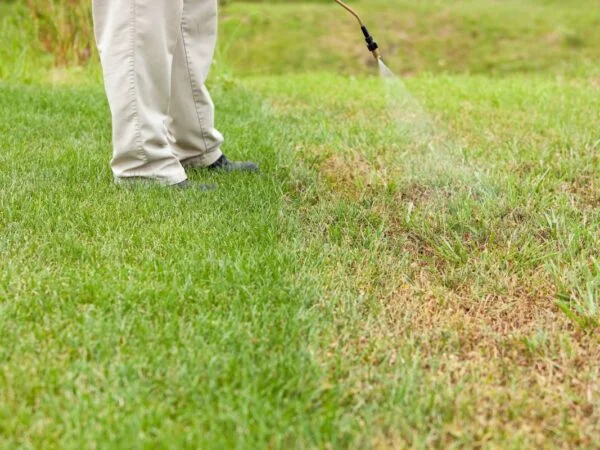Discovering the best time to plant Bermuda grass seed in Texas can mean the difference between a lush, thriving lawn and a lackluster one. Timing is crucial - planting too early may expose seeds to harsh conditions, while waiting too long could hinder growth. Understanding the optimal window for seeding your Bermuda grass ensures successful establishment and vibrant greenery. In Texas, factors like temperatures, soil moisture, and seasonal patterns play significant roles in determining the ideal planting time. By grasping these nuances and acting accordingly, you can set your lawn up for success and enjoy a beautiful Bermuda grass landscape.
Key Takeaways
- Plant Bermuda grass seed in Texas during late spring to early summer for optimal growth.
- Enjoy benefits like drought tolerance, high traffic resistance, and quick establishment with Bermuda grass.
- Be aware of Bermuda grass drawbacks such as invasiveness and potential for thatch buildup.
- Choose the right Bermuda grass variety based on your specific needs and preferences.
- Prior to planting, prepare the soil by ensuring proper drainage and adjusting pH levels if necessary.
- Follow recommended planting techniques like proper seed depth and watering to enhance Bermuda grass growth.
Optimal Planting Time
Texas Climate
Texas boasts a warm climate that provides the perfect conditions for Bermuda grass, a plant, to thrive. With hot summers and mild winters, Texas offers an excellent environment for growing Bermuda grass seed.
When planting Bermuda grass in Texas, it's crucial to take into account the state's climatic conditions. The long hours of sunlight and consistent warmth create an ideal setting for Bermuda grass growth.
Soil Conditions
Bermuda grass showcases remarkable adaptability to various soil types commonly found across Texas. Whether it's sandy, clay, or loamy soil, Bermuda grass can flourish in different environments.
For successful growth, ensure the soil is well-draining to prevent issues like waterlogging. Proper drainage is essential as it helps maintain the right moisture levels for optimal Bermuda grass development.
Seasonal Variations
In Texas, seasonal changes play a significant role in the growth and establishment of Bermuda grass. To achieve the best results, consider planting Bermuda grass seed during late spring or early summer.
During these seasons, the warmer temperatures and increased sunlight provide favorable conditions for Bermuda grass germination and establishment. This timing allows the seeds to take root effectively and grow vigorously.
Bermuda Grass Benefits
Drought Resistance
Bermuda grass thrives in Texas due to its drought-resistant nature, surviving well in hot and dry conditions. This makes it an ideal choice for homeowners looking for a resilient turf option. To maintain healthy Bermuda grass during dry periods, water deeply but infrequently, encouraging deep root growth that enhances drought tolerance.
Maintenance Needs
The low maintenance requirements of Bermuda grass make it a popular choice among homeowners in Texas. Its hardiness reduces the need for excessive care, saving both time and effort. To keep Bermuda grass healthy and vibrant, adhere to a regular mowing schedule, ensuring not to cut more than one-third of the grass height at once.
Drawbacks of Bermuda
Invasive Nature
Bermuda grass is notorious for its aggressive growth, spreading rapidly and invading other areas of your garden. To manage this, consider installing physical barriers like edging or deep trenches to contain its expansion. Regular mowing can help control the spread of Bermuda grass and prevent it from encroaching on flower beds or walkways.
Shade Intolerance
One significant drawback of Bermuda grass is its intolerance to shade. This grass thrives in full sun conditions and struggles to grow in shaded areas. If you have trees or structures casting shadows over your lawn, planting Bermuda grass may not be suitable. It's essential to choose locations with ample sunlight exposure for optimal growth and development.
Bermuda Varieties
Hybrid Bermuda
Tifway 419 hybrid Bermuda grass stands out for its high durability and rapid recovery, making it a popular choice. It can withstand heavy foot traffic and quickly bounce back from stress. During winter in Texas, this hybrid type tends to go dormant, turning brown until warmer temperatures return.
Common Bermuda
Common Bermuda grass is known for its coarse texture and ability to spread rapidly across the lawn. Its tough nature makes it ideal for high-traffic areas. Compared to other varieties, Common Bermuda has larger leaves and longer stems, giving it a unique appearance that sets it apart.
TifTuf Bermuda
With its soft texture and striking vibrant green color, TifTuf Bermuda grass offers an appealing aesthetic for lawns. This variety excels in drought tolerance, requiring less water than others to thrive. TifTuf Bermuda demonstrates impressive shade resistance, maintaining its lush appearance even in low-light conditions.
Soil Preparation
Testing Soil
Soil testing is crucial before planting Bermuda grass seed in Texas to ensure optimal growth. Conduct soil tests by collecting samples from different areas of the lawn. Interpret results to understand pH levels, nutrient deficiencies, and soil composition.
To conduct a soil test, use a soil probe or shovel to collect samples from various spots in the lawn. Mix these samples in a clean bucket and send them to a reputable laboratory for analysis. Once you receive the results, follow recommendations for adjusting pH levels and nutrient deficiencies.
Enhancing Fertility
Enhancing soil fertility is key for successful Bermuda grass growth in Texas. Consider using organic fertilizers or amendments to boost nutrient levels naturally. Organic options like compost, manure, or bone meal can enrich the soil with essential nutrients needed for healthy grass development.
Incorporate organic matter into the soil before planting Bermuda grass seed to improve its texture and fertility. This will provide a rich environment for roots to establish and thrive. Regular applications of organic fertilizers throughout the growing season can further support robust growth.
Planting Techniques
Seed Selection
When choosing Bermuda grass seeds for planting in Texas, consider factors like climate adaptability and maintenance requirements. Varieties such as Tifway 419 are ideal for high-traffic areas due to their durability. On the other hand, Common Bermuda is a cost-effective option suitable for various soil types. TifTuf, known for its drought resistance, is perfect for Texas' hot summers.
Sowing Methods
For successful establishment of Bermuda grass in Texas lawns, follow specific sowing techniques. Utilize overseeding to fill in sparse areas and promote denser growth. Alternatively, opt for slit seeding to ensure direct seed-to-soil contact, aiding in quicker germination and root development.
Post-Planting Care
Watering Schedules
Establish proper watering schedules for newly planted Bermuda grass seeds to ensure optimal growth. Consistent moisture levels are crucial without overwatering during the initial phase.
To promote healthy root development, water the newly planted Bermuda grass seeds lightly 2-3 times daily. Gradually reduce the frequency as the grass establishes itself, shifting to deep but less frequent watering sessions.
Fertilization Tips
For optimal growth, fertilize Bermuda grass at specific intervals following planting. Consider using slow-release fertilizers for gradual nutrient provision over time, promoting sustained growth and health.
Apply fertilizer about six weeks after planting to support the establishment of Bermuda grass. Subsequently, follow up with additional applications every 6-8 weeks throughout the growing season for continued nourishment.
Weed Control
Common weed issues may arise when cultivating Bermuda grass in Texas post-planting. To maintain a healthy lawn without harming your turfgrass, implement safe and effective weed control methods promptly.
Regularly inspect your lawn for weeds and address them immediately to prevent competition for nutrients with your Bermuda grass. Utilize selective herbicides targeting weeds while preserving the integrity of your established turfgrass.
Mowing Practices
Ideal Height
Maintaining Bermuda grass in Texas requires mowing at a recommended height of around 1 to 1.5 inches. This height ensures that the grass remains healthy and vibrant throughout the growing season. Cutting at this specific height is crucial as it encourages robust root development, enabling the grass to withstand varying weather conditions prevalent in Texas. By adhering to this mowing height, you promote a dense turf cover that effectively crowds out weeds and fosters an overall healthy lawn.
Frequency
To prevent overgrowth of Bermuda grass in Texas lawns, it is advisable to mow regularly. For optimal results, aim to mow your lawn once a week during the active growing seasons. Consistent weekly mowing helps maintain the turf at an ideal height, promoting lush growth and preventing scalping or stress on the grass blades. This regular maintenance routine not only keeps your lawn looking neat but also contributes significantly to its long-term health and vitality.
Pest Management
Insect Control
In Texas, common insect pests that can harm Bermuda grass include armyworms, chinch bugs, and grubs. These pests feed on the grass, causing significant damage to its health. To control insects, integrated pest management (IPM) practices are crucial. By using environmentally friendly methods like biological control and targeted pesticide application, you can effectively manage insect populations without harming beneficial organisms such as ladybugs or earthworms.
Disease Prevention
Being aware of potential diseases is essential. Brown patch fungus and dollar spot are among the common diseases that can affect Bermuda grass in this region. To prevent these issues, ensure proper watering practices by avoiding overwatering or underwatering. Good air circulation around the grass blades also helps reduce humidity levels that promote disease development. Choosing disease-resistant cultivars when planting Bermuda grass seeds can significantly lower the risk of disease outbreaks.
Summary
You now have a clear understanding of the best time to plant Bermuda grass seed in Texas, the benefits it offers, its drawbacks, the different varieties available, soil preparation techniques, planting methods, post-planting care tips, mowing practices, and pest management strategies. By following these guidelines, you can ensure a successful Bermuda grass planting experience in your Texas lawn. Remember to consider the optimal planting time, choose the right variety for your needs, prepare the soil adequately, follow proper planting techniques, provide post-planting care diligently, mow correctly, and manage pests effectively to enjoy a lush and healthy Bermuda grass lawn.
Frequently Asked Questions
When is the best time to plant Bermuda grass seed in Texas?
The optimal time to plant Bermuda grass seed in Texas is during late spring or early summer when the soil temperature consistently reaches 65-70°F. This allows for quick germination and establishment of the grass.
What are the benefits of planting Bermuda grass?
Bermuda grass offers benefits such as excellent heat tolerance, drought resistance, rapid growth rate, and ability to withstand heavy foot traffic. It provides a lush green lawn that requires minimal maintenance once established.
Are there any drawbacks of planting Bermuda grass?
While Bermuda grass is highly resilient, it can be invasive and spread quickly beyond intended areas. It may require frequent mowing during peak growing seasons and has limited shade tolerance compared to other turfgrass varieties.
Which Bermuda grass varieties are suitable for Texas climate?
Common Bermuda grass varieties like Tifway 419 and Celebration are well-suited for the hot climate of Texas. These varieties exhibit strong heat tolerance, wear resistance, and recovery capabilities ideal for lawns in Texas.
How should I prepare the soil before planting Bermuda grass seed?
Before planting Bermuda grass seed, ensure proper soil preparation by removing weeds, loosening compacted soil with a tiller, leveling uneven surfaces, and amending with organic matter if necessary. Conduct a soil test to determine nutrient needs for optimal growth.
Image Source: Paid image from CANVA




